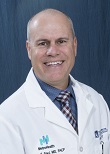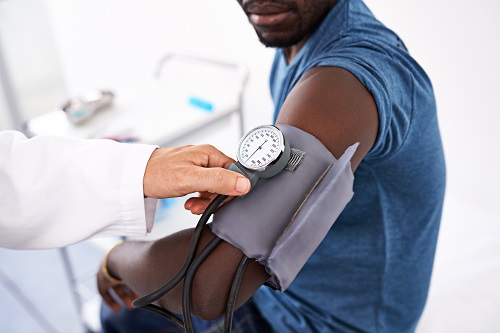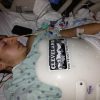Need to find a MetroHealth primary care physician near you? Visit metrohealth.org/physiciandirectory.
What the New Blood Pressure Guidelines Mean for You
Have you heard the news that nearly half of Americans now have high blood pressure? According to the 2017 blood pressure guidelines from the American College of Cardiology and the American Heart Association, readings of 130/80, rather than 140/90, signal high blood pressure and need to be treated with either lifestyle changes or medication.
“The new guidelines don’t mean that you should be worried,” says James Saul, MD, a primary care doctor at MetroHealth. “They’re designed to encourage doctors to follow patients’ blood pressure more closely and to recommend effective lifestyle changes and, in some cases, to be more aggressive when prescribing blood pressure medications.”
If you have elevated or high blood pressure and another medical condition such as heart disease, kidney disease or diabetes, you may need blood pressure medication. Most blood pressure medications “are very well tolerated and have few side effects,” says Dr. Saul.
If your blood pressure is normal, having it checked annually is fine according to Dr. Saul.
The following lifestyle changes can help lower blood pressure, according to Dr. Saul:
- If you smoke or chew tobacco, kick the habit. “Tobacco can cause hypertension and is one of the biggest risk factors for cardiovascular disease,” says Dr. Saul.
- Get up and get moving. If you don’t currently exercise, try going for a brisk walk for about 30 minutes a day, five days a week.
- Dare to DASH. Dr. Saul recommends Dietary Approaches to Stop Hypertension, or the DASH diet. This nutritional plan encourages eating whole grains, fruits and vegetables, low-fat dairy products, lean proteins and foods low in sugar and salt.
- Keep the drinks to a minimum. Men should have no more than two alcoholic drinks a day. Women should have no more than one.
- Give your meds a makeover. Talk to your doctor about any medications you’re taking. Even some over-the-counter products such as decongestants can cause your blood pressure to rise.
If your blood pressure is elevated at the doctor’s office, your MetroHealth physician will recheck it within 30 days. If it’s still high, your doctor will discuss making lifestyle changes and the possibility of taking blood pressure medication. After another 30 days, you should see your doctor again to see if any changes you’ve made or medication you’re taking is working.
The new recommendations also encourage home blood pressure monitoring to help diagnose white coat hypertension. This is high blood pressure that occurs in your doctor’s office but not elsewhere, most likely because seeing the doctor makes you nervous. Talk to your doctor about which home monitoring unit may be right for you.
Need to find a MetroHealth primary care physician near you? Visit metrohealth.org/physiciandirectory.
Did you know?
MetroHealth has been recognized by the Target: BP Recognition Program, an initiative developed by the American Medical Association, for helping patients manage high blood pressure, reducing the amount of adult patients with uncontrolled high blood pressure and ultimately building a healthier community.
Contributor:

James Saul, MD
Internal Medicine











